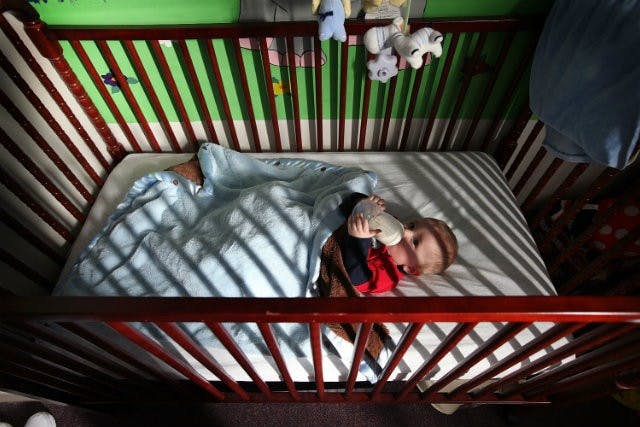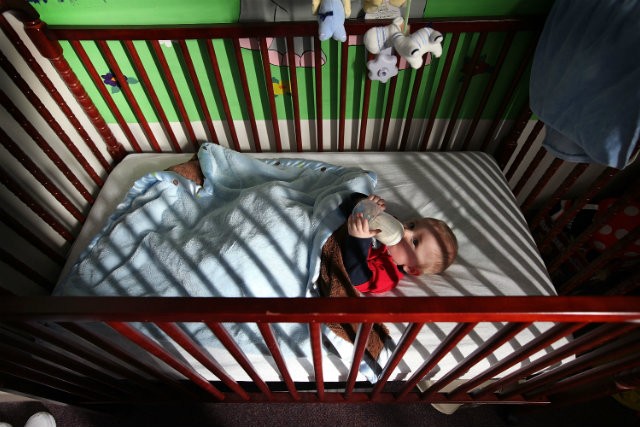What Happens to Babies born in Jail!?
Jan 21, 2015
Story


Gossip Girl actress Leighton Meester’s success must have been completely unimaginable to her parents when she was born. The Gossip Girl’s mother, Connie Meester, probably had lesser outcomes in mind when she gave birth to Leighton while beginning a 10-year sentence at a federal prison in Texas for drug smuggling.
Despite the fact that nearly two-thirds of women in U.S. prisons are mothers, there is still no national policy that dictates what should happen to the more than 2,000 children that are born behind bars each year.
Where do these babies go? Up until the 1950s, prison nurseries were the norm in most states; so most were raised behind bars by their mothers. Then came an explosion in the prison population—between 1977 and 2007, the number of women in prison increased by 832 percent—leaving states unable to afford the prohibitive $24,000 cost of raising a baby in jail. Not surprisingly, the vast majority of incarcerated mothers are now forced to either give up their child to foster care or place the kids with relatives.
Recently, a handful of states have begun experimenting with nursery programs and community-based residential parenting programs. Competition for spots is fierce, and only mothers who are serving short sentences for non-violent crimes are eligible. While the length of stay varies from state to state (at the South Dakota Women’s Prison babies are only allowed to stay for 30 days, while at the Washington Correctional Center it’s three years), the results have been unanimously positive: one survey showed that 95 percent of mothers felt they had a stronger bond after the program, and all agreed that other states should adopt similar programs.
The evidence supporting mothers raising their children in jail is extensive. Increasingly, studies are showing that the first two years of a baby’s life are critical for the mother-child bond, and babies bereft of that bond are more likely to display troubled behavior later on. In addition, women who are allowed to raise their children in jail are much less likely to return to crime. One study of the Nebraska Correctional Center found that 33 percent of women who had been separated from their children ended up back in jail, versus just 9 percent of women who were allowed to raise their children.
Across the world, many countries seem to agree that a baby’s place is with its mother. In Sweden, babies can be accommodated for up to a year (the average stay is three months). In most European countries, mothers are allowed to keep their infants through weaning. Prisons in India are required to offer nurseries and day care for mothers and their children. In Chile, jail-born children begin taking state-run educational programs at six months of age. In Mexico, children are required to stay with their mothers until they’re 6 years old, and have the freedom to leave on weekends and holidays.
For those who balk at the thought of infants being raised behind bars, Germany represents a common sense compromise. There, qualified mothers are allowed to leave prison every morning to see their children off to school, spending the day doing housework and preparing meals for their children. At the end of the day, the women return to the jail to sleep. Their waking hours are spent fostering a stable, nurturing environment for the next generation, one that won’t have to remember a childhood spent behind bars.
Don't Imprison Marissa Alexander for Standing Her Ground
Clearly, jail is not the ideal place to raise a child. But it’s also clear that separating mothers from newborns isn’t just cruel, it’s detrimental to both mother and child. Those who are opposed to the idea often cite the prohibitive costs, but as the low recidivism rates of these mothers show, the costs of taking these children away may be even higher in the long run.
A little common sense and compassion can go a long way toward increasing the chances of a productive future for these kids. They won’t all grow up to be television stars like Leighton Meester, but their first steps will be guided by a mother’s loving hand.
What would you do if you or a loved one had a baby in jail? Let us know in the COMMENTS.
Source: Takepart.com
Writer: Oliver Lee has been covering social justice and other issues for TakePart since 2009. Originally from Baltimore, he lives and writes on a quiet, tree-lined street in Brooklyn. Email Oliver | @oliverung




